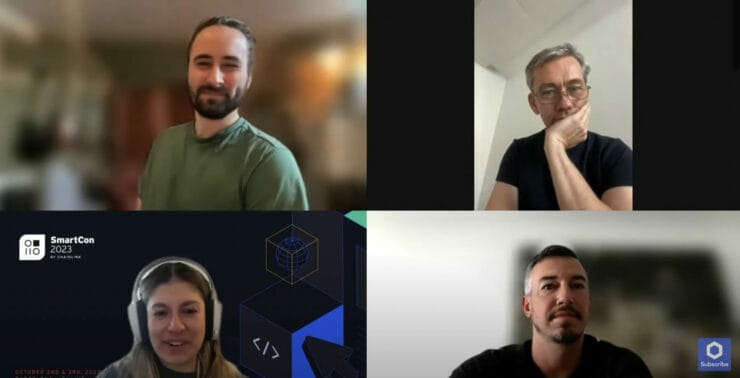The Chainlink BUILD program is designed to strengthen the Chainlink Network by fostering promising early-stage startups in Chainlink’s ecosystem. Participants receive benefits such as priority access to technical support and new services from Chainlink in exchange for paying fees that incentivize Chainlink service providers and boost the network’s cryptoeconomic security.
During Chainlink’s most recent Web3 Marketing Masterminds (W3MM) webinar, three panelists from Chainlink BUILD projects – Kevin Conabree, Global Head of Growth at bitsCrunch; Andras Kristof, CEO at Galaxis; and Rasmus Rasmussen, CMO at Planet IX – convened to share what it takes to build a successful startup with Chainlink.
All three speakers highlighted the foundational role Chainlink’s decentralized infrastructure, particularly Chainlink VRF (Verifiable Random Function), plays in launching a sustainable web3 startup.
“Being able to use VRF from Chainlink is absolutely essential for everything that we build,” said Kristof of Galaxis’s web3-based community builder and management tool, which helped launch Val Kilmer’s Chainlink-powered GOD Panel NFT collection.
He said on-chain randomness is so essential and difficult to achieve that Galaxis will only operate on blockchains with native VRF integrations.
“When we are looking at a new chain, whether we should go there or not, first what we do is we check if there is VRF,” he explained. “If there is no VRF, we stay away.”
Rasmussen echoed the importance of utilizing VRF as the industry standard for on-chain randomness. He said establishing the highest degree of transparency and reliability is essential to building a sustainable and engaged user base.
Participating in BUILD also gives startups priority access to new Chainlink services as they’re being developed. Rasmussen said that being able to help shape critical new infrastructure “makes everything a lot more efficient than building in the dark.”
“I know our developers are extremely happy with the collaboration,” he added.
All three speakers celebrated the opportunity to develop web3 projects that transcend web2’s biggest pain points, particularly when it comes to data autonomy. Kristof emphasized building slowly and deliberately with a primary focus on decentralization through trust-minimized infrastructure.
“The technology that we are getting from the blockchain and from Chainlink really enables us to rethink the business processes in this way and create workable, feasible user account systems,” he explained. “I think if we keep it up, we can solve some of these problems of our data and lives being sold to the highest bidder.”
While traditional marketing strategies don’t always translate to web3, BUILD has been integral to helping projects scale by harnessing the collective utility of the Chainlink ecosystem. All three panelists recommended web3 startups prioritize a win-win mentality by collaborating with reputable technology partners and keeping community engagement at the forefront.
For web3 projects that are just getting started, Conabree advised building something that solves a critical pain point and empowers users. “Hold true on the value points, hold true on the decentralization of data, give everyone back the power, and then make it really accessible and easy to understand what the value is,” he said.
Watch the full panel discussion.


